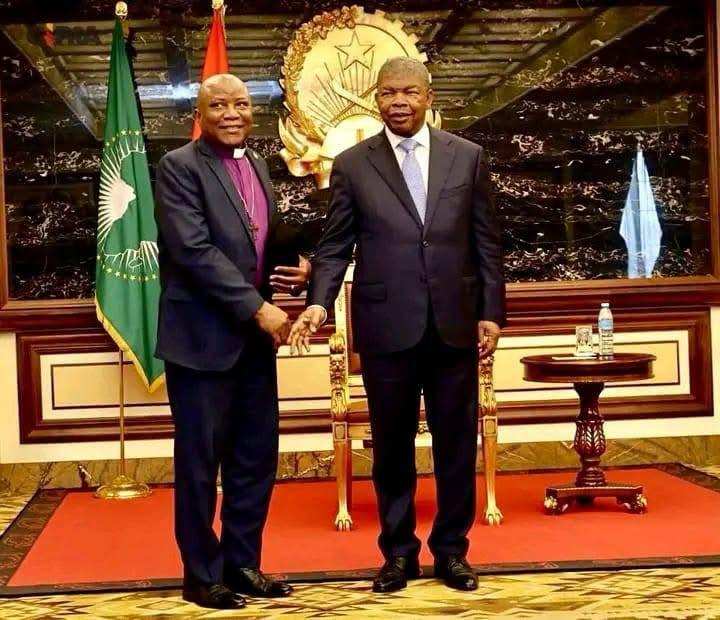The Africa College of Bishops of The United Methodist Church convened in Luanda, Angola, from September 1st to 4th, 2025, to address critical issues facing the church on the continent. Their meeting culminated in a comprehensive statement encompassing matters of faith, governance, unity, and mission. While the statement covered a broad range of topics, the bishops’ pronouncements on marriage and the protection of church property emerged as the dominant themes, reflecting deeply held convictions and priorities for the African church. These declarations underscore the unique challenges and opportunities facing the denomination within the diverse cultural and social landscape of Africa.
Central to the bishops’ pronouncements was their unwavering affirmation of the traditional understanding of marriage as a union exclusively between one man and one woman. This stance, rooted in their interpretation of biblical scripture, specifically citing Genesis 2:24 and Matthew 19:5, aligns with prevailing cultural norms and legal frameworks across many African nations. The bishops characterized this view as a “long-standing theological and cultural understanding,” emphasizing its deep resonance within the African context. Furthermore, they pledged to actively promote a “holistic Christian sexual ethic” grounded in scriptural teachings and discipleship, signaling their commitment to upholding this perspective within their respective congregations and communities.
This reaffirmation of traditional marriage comes at a time when The United Methodist Church globally continues to grapple with divergent views on marriage and LGBTQ+ inclusion. For the African bishops, this declaration represents not merely a theological position but a reaffirmation of their cultural identity and societal values. Their stance reflects the prevailing social conservatism within many African societies and underscores the potential for further division within the global denomination as different regions navigate these complex issues.
Beyond matters of faith and doctrine, the bishops also addressed the critical issue of safeguarding church property. They declared church properties across the continent as “sacred trust resources for our mission,” underscoring their vital role in supporting the church’s multifaceted ministry. The bishops’ emphasis on property protection reflects a commitment to preserving the legacy of the church and ensuring the continuity of its mission in Africa. They applauded a recent legal victory in Liberia upholding the church’s ownership rights, highlighting the importance of legal frameworks in protecting these valuable assets.
The bishops’ commitment to property protection is intrinsically linked to their broader missional objectives. They emphasized the crucial role of church properties in facilitating evangelism, education, healthcare, and community development initiatives. These areas represent key pillars of the church’s engagement within African society, demonstrating its commitment to holistic ministry and social upliftment. By securing these assets, the bishops aim to ensure the long-term sustainability of these vital programs and their positive impact on communities across the continent.
Beyond the central themes of marriage and property, the bishops’ statement addressed a diverse range of concerns pertinent to the African church. They celebrated the remarkable growth of the denomination in Africa, a testament to the vibrancy of its faith and its relevance within the African context. They also acknowledged the need for greater structural clarity within the West African region, hinting at potential organizational adjustments to enhance effectiveness and responsiveness to local needs. Furthermore, the bishops expressed their commitment to regionalization as a pathway to maintaining unity within the global church while respecting the diverse cultural contexts of different regions. This approach recognizes the unique challenges and opportunities facing the church in different parts of the world and seeks to empower regional bodies to address their specific needs.
The bishops also addressed critical social issues impacting the continent, including the ongoing violence in various regions. They condemned these acts of violence and pledged their support for peacebuilding initiatives. Recognizing the importance of developing future leaders, the bishops affirmed their commitment to supporting theological education, ensuring the continued formation of clergy and lay leaders equipped to serve the church in the 21st century. Furthermore, they advocated for sustainable practices to strengthen the church’s self-reliance, reducing dependency on external resources and empowering local communities.
The meeting in Luanda concluded on a note of gratitude, with the bishops expressing their appreciation to Angolan President João Manuel Gonçalves Lourenço and his government for their hospitality and the peaceful environment provided for their deliberations. Looking ahead, the bishops pledged to lead with humility and courage, embracing the responsibility of the African church to be a beacon of hope and a source of positive change within the continent and beyond. Their concluding statement, “As Africa rises, so too does our responsibility to be a light to the nations,” encapsulates their vision for the future, emphasizing the pivotal role of the church in shaping a brighter future for Africa and the world.


